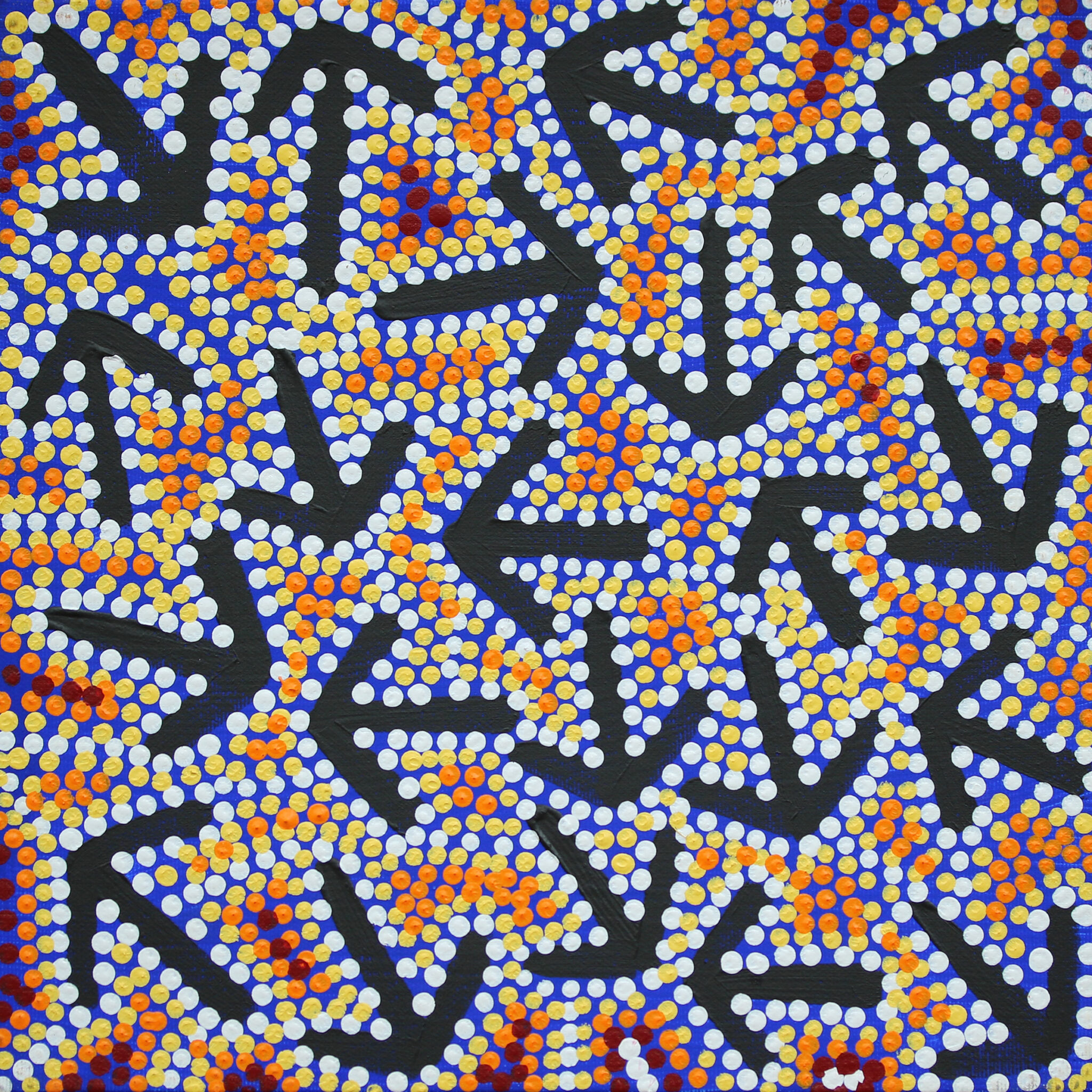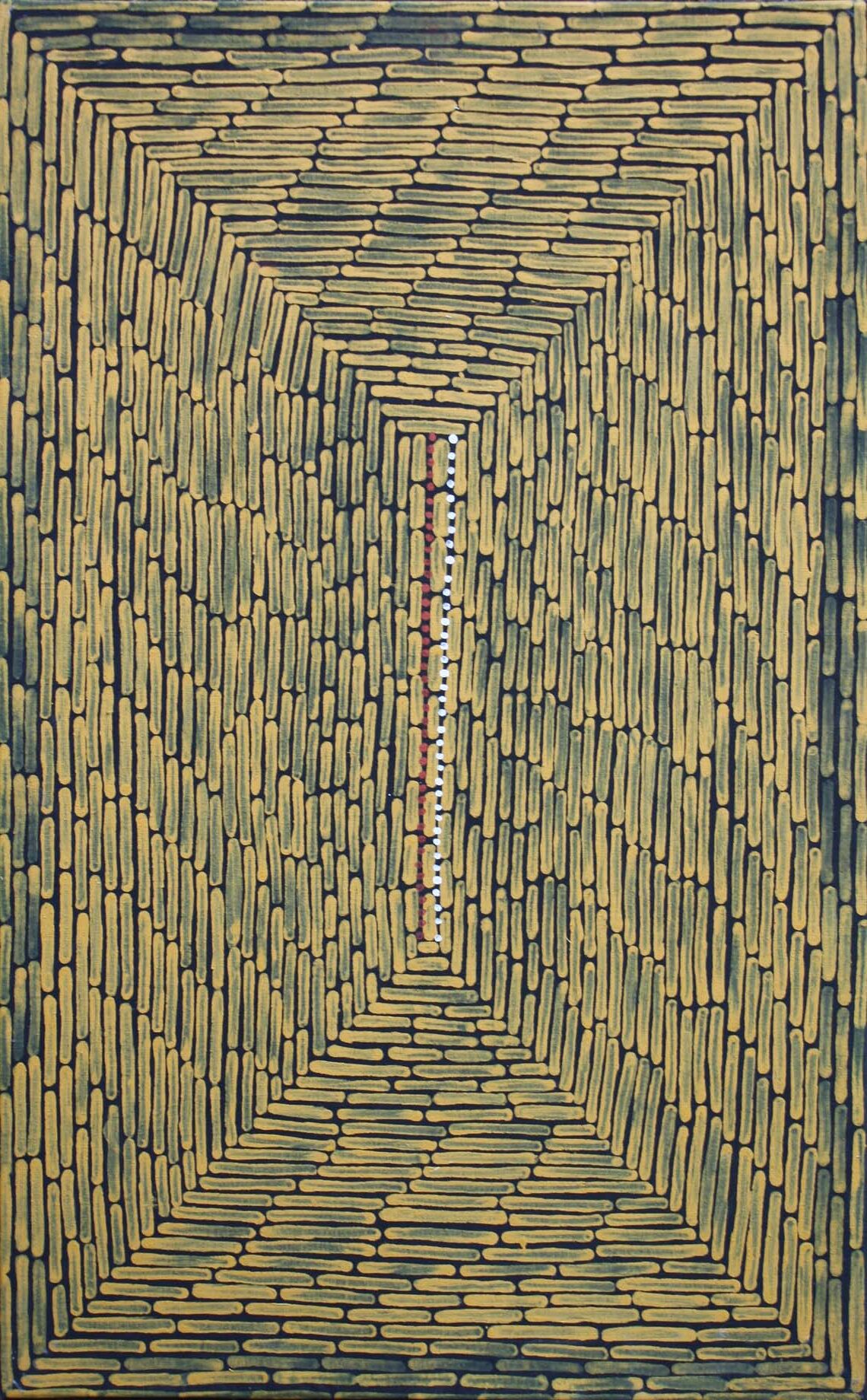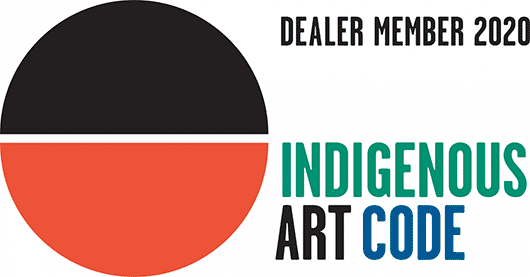Zita Pengarte Wallace
Details
Biography
Zita Wallace still remembers the coarse texture of the blanket that she huddled under in anxiety and confusion on the day she was wrenched from her Aboriginal family and sent to live in an orphanage run by white people. It was 1947 and she was seven years old.
“We were put in a dormitory that had mattresses on the floor,” she recalls, brushing away flies in the sweltering midday heat of the outback.
She adds: “There were no sheets but we had blankets, like the blankets they used for horses, hairy and rough. They gave us bread and tea and when the sun started to go down we all got upset. I remember little Barbie crying because she was only four and one of the older girls holding her, and walking around with her. I lay down and put the blanket over my head and I was just crying and crying.”
Wallace was one of the “stolen generation”, thousands of mixed-race indigenous children in Australia forcibly removed from their families under a government-sanctioned policy of white assimilation.
The children, mostly the offspring of fleeting sexual encounters between Aboriginal mothers and European fathers, were taken to orphanages, church missions or foster homes to be raised separately from their families and culture.
The practice was eventually abandoned in the 1970s, and 11 years ago a report entitled Bringing Them Home recommended a formal apology to the stolen generation.
The word “sorry” will finally resound through Australian public life on Wednesday, when the new Prime Minister, Kevin Rudd, offers an apology in parliament on behalf of the Australian government. “I think this is a blight on the nation’s soul,” Rudd told Australian television yesterday.
But not everyone agrees. The apology, which will not attribute guilt to the current generation of Australians, remains highly contentious. The opposition indigenous affairs spokesman, Tony Abbott, said: “Yes, some kids were stolen and this is shameful but many were helped and some were rescued.” Some people claim children were rescued from malnourishment, homelessness or abandonment.
Others are dismissing the government apology as a token gesture that will not improve the lives of Aborigines who still live on the margins of Australian society in communities blighted by alcohol, violence and poor health.
But by far the hottest issue is the question of whether the apology will lead to financial compensation, which was also recommended in the Bringing Them Home report.
The government has said this will not happen but Aboriginal activists are already saying that sorry is not enough and have talked about a $1bn fund. “We are concerned that the apology is not being accompanied by reparations, which is part of forgiveness,” said Les Malezer, a spokesman.
In the shimmering heat of the Pmwarekenhe plain, Wallace is not that interested in the money, she says. The word sorry might not buy much in the red, dusty, desert surrounding her house deep in the bush, about 60 miles from Alice Springs but it would help heal a community, the 68-year-old says.
“We are a broken people. A lot of our people have no identity, they have no pride in themselves,” says Wallace, who returned to her grandfather’s sacred Worita land to immerse herself in aboriginal culture seven years ago. “They have lost the will to survive, and that’s been passed on to their children. They have got into drugs and alcohol and a lot of our youth are killing themselves. Recognising that we were stolen, it’s admitting that a wrong was done to us.”
Her mother’s sister, whom she affectionately calls Mum-Aggie, recalls the way part-Aboriginal children were removed. “A middle-aged white man came, a short man who smoked a pipe. He would go around the communities and pretend to have a conversation with people but really his eyes were on the children playing,” she says. “That’s how he took note of the kids and reported them.”
Wallace was tricked into leaving her home, along with four other girls, by nuns at the Catholic-run mission who told her she was going shopping. “They put us in the back of a truck but we never went near any shop,” she says. “They took us to the telegraph station which was the holding centre for half-caste children from all over central Australia.”
She ended up in an institution for 200 children, run by the Catholic church, hundreds of miles away in the Tiwi Islands, about 50 miles north of Darwin, and remained there until the age of 19.
“We got belted for speaking our language. We were called pagans and heathens and spawn of the devil,” she says. When, at first, they asked about their families, they were told they didn’t have any. “We cooked for the nuns, we washed their big bloomers, we cleaned their rooms. We got just enough education to read and write. The brighter, fairer kids were sent away to colleges or to be adopted into white families but I didn’t get selected.”
Some of the children were physically and sexually abused. “I won’t go into what happened on the island, it doesn’t serve any purpose now.”
Wallace married and had a family, and later, in the mid 1990s, found her mother, Nancy. “There was never the closeness I would have liked but at least my mother died knowing that I came back to her.” As for financial compensation, she thinks the issue should be left for the future. “We just want to have this historic day.”
This article is taken from The Guardian’s web site.
Artwork
-
29 Hunter St, Hobart 7000,
Tasmania, Australia - +61 3 6236 9200
- euan@artmob.com.au
Cash – locally only – up to $10,000 only. Layby facilities available. Card details can be advised securely using WhatsApp.
© Art Mob Pty Ltd, Aboriginal Fine Art Dealer, all rights reserved.


